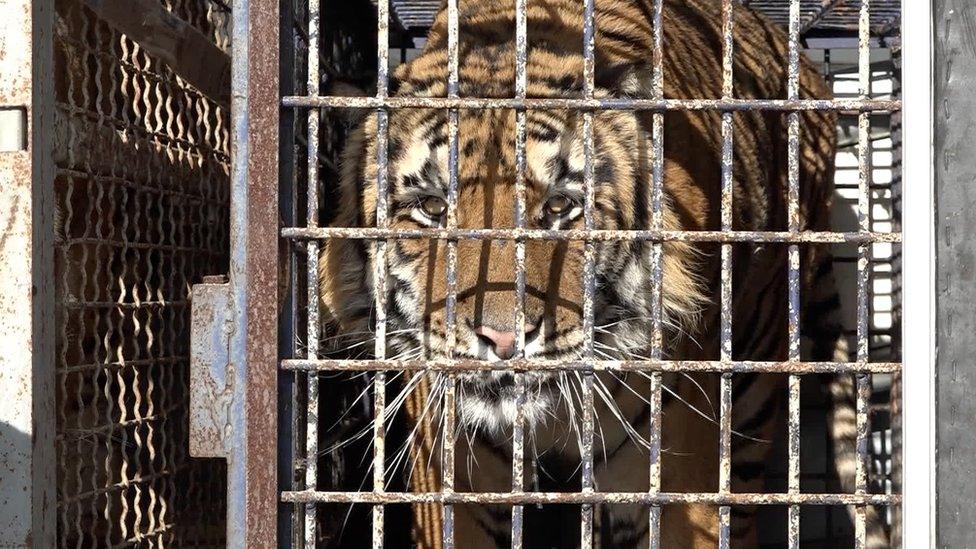The tiger ‘gift’ that horrified Polish rescuers
- Published
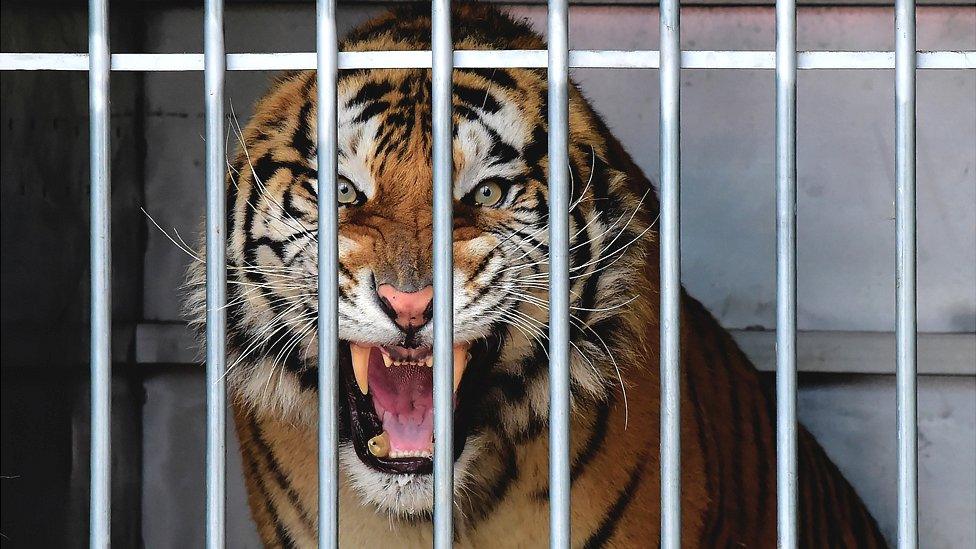
There are suspicions that the rescued tigers were destined to be used in Asian medicine
Nine emaciated and distressed tigers transported from Italy to the Poland-Belarus border are safe now, but the case exposed a cruel, shadowy trade in exotic animals destined for Asia.
The discovery last October shocked Ewa Zgrabczynska, director of Poznan Zoo in Poland, which is looking after four of them.
The other five were taken in by an animal welfare centre called Primadomus, near Alicante in southern Spain.
The tigers were starving, thirsty and filthy after a 2,000km (1,243-mile) road journey to Belarus. A tenth one did not survive.
The survival of the other nine was just good luck: the Belarus border guards were suspicious about the animal transporter's paperwork and refused to let it through.
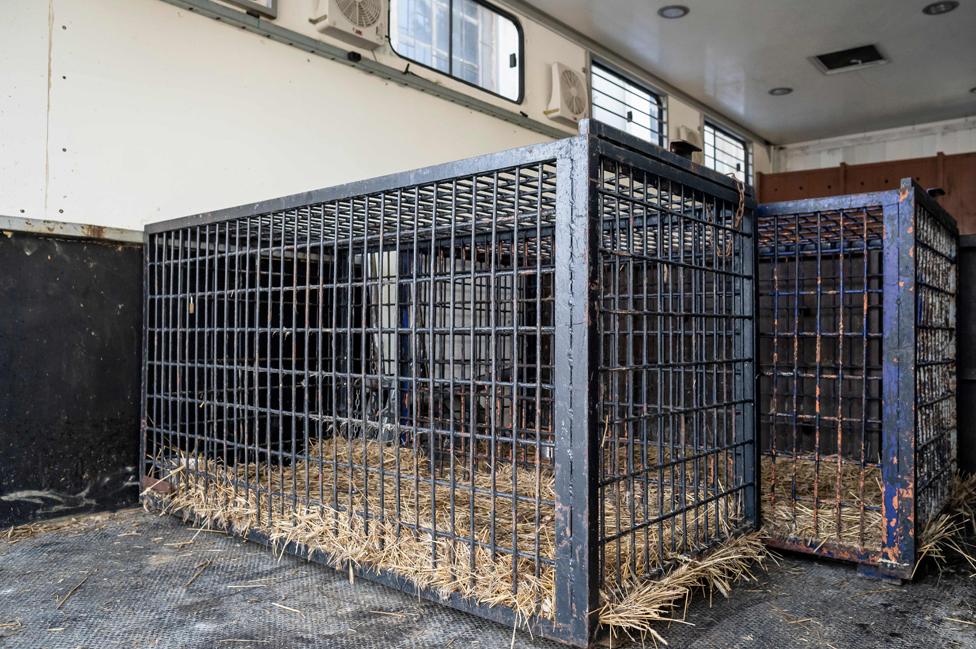
The tigers endured more than two days on the road in these small cages
The animal transport lorry, driven by two Italians, was totally unsuited for the tigers crammed in there: it was the type used for carrying horses or cattle.
'A real nightmare'
BBC Russian has established that they were bound for an unlicensed zoo in distant Dagestan, in Russia's Caucasus. But the question is: did the final customer want them dead or alive?

Read more on the trade in exotic wildlife:

Poznan Zoo described its horror on Facebook: "Our employees arrived at the scene to discover a real nightmare. The tigers have excrement stuck to their fur and are tired and hungry. Our veterinarian says their condition is appalling."
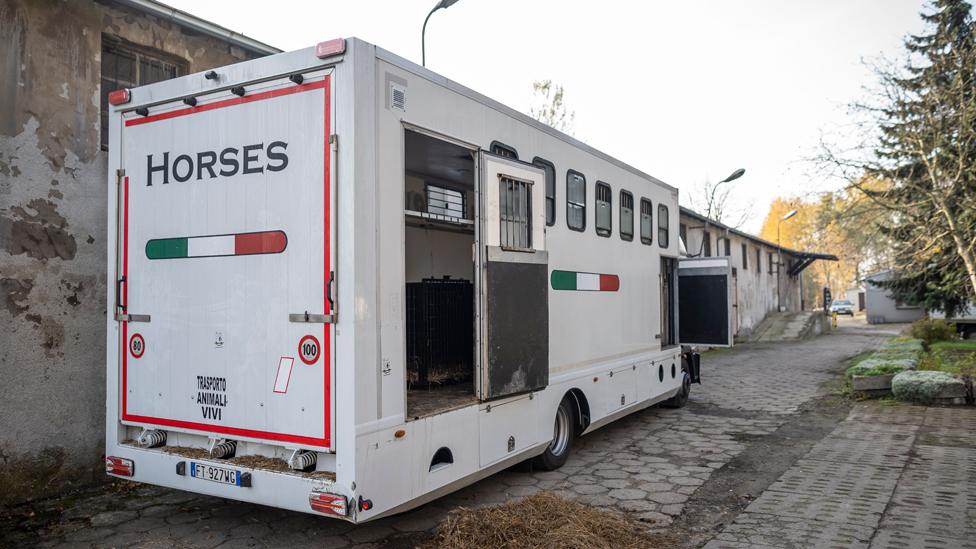
The Italian transporter parked at Poznan Zoo in November 2019
Ewa Zgrabczynska doubted that any circus director or zoo manager would subject animals to such conditions - after all, their animals' health is key to their livelihood.
"I think this was a deadly journey for the tigers. The price of a tiger on the black market can be very high and animal parts are even more expensive than a live animal," she said.
In the documentation the tigers were described as a "gift" for a zoo called Skazka ("fairy tale" in English) in Derbent, Dagestan.
Ms Zgrabczynska believes the "gift" description was a ruse to get round Cites - the Convention on International Trade in Endangered Species. Tigers are among the many species that Cites is designed to protect.
She told the BBC that "such animals are kept in private zoos in Russia or their body parts are sold, and then so-called medicines are made out of them, which you really can't describe as medicines.
"A tiger's teeth, liver or some other parts can be sold for big sums."
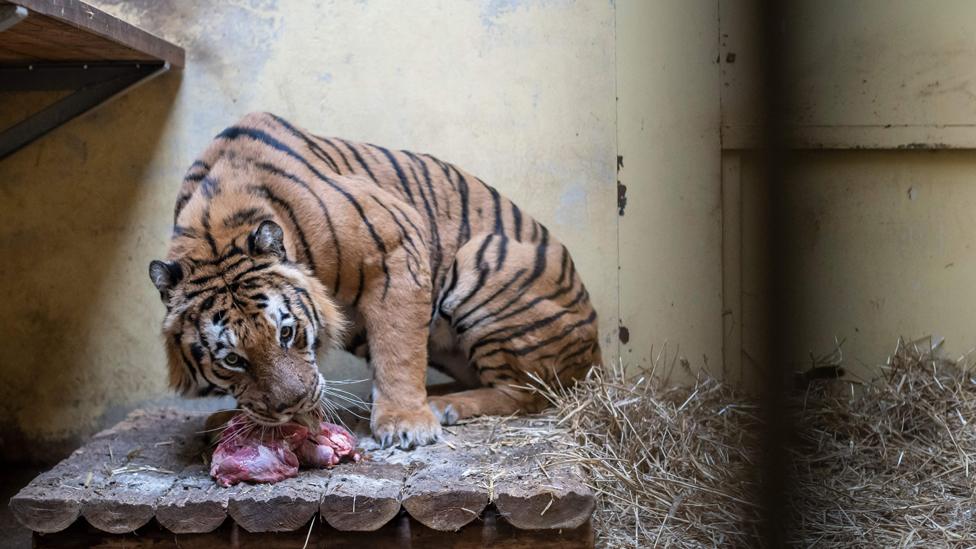
Donations from the Polish public went towards helping the tigers' recovery
Polish prosecutors are investigating the incident, but so far nobody has been charged.
Andrea Casini at the Italian animal welfare group LAV said "I don't have proof - nobody has - but I guess they were taking the tigers to China or elsewhere in Asia to use in eastern medicine".
He said it was very unlikely that any zoo would want to receive 10 tigers.
Poachers have decimated Amur tigers in Russia's far east, partly because of the demand for tiger parts in Chinese traditional medicine.
Rare Russian tiger returns to the wild
UN and Interpol data reveal that the criminal trade in wild animals is the most lucrative after drugs, human trafficking and arms deliveries. The wildlife trade generates annual turnover of about $200m (£153m), and cross-border sales are often disguised as shipments for circuses or zoos.
Circus family
Polish channel TVN24 got confirmation from an Italian circus family called Montico, based near Rome, that they had sent the tigers on the marathon journey to Russia.
Gaetano Montico, an animal trainer, admitted that Skazka zoo was the customer, but did not go into detail.
The Monticos stage an international circus festival every autumn in Latina, just south of Rome. Russian circus performers have participated.
"The tigers were brought to us by a man who could no longer look after them," Gaetano Montico said.
"Some had arrived from abroad, from various places - zoos and circuses," he said.
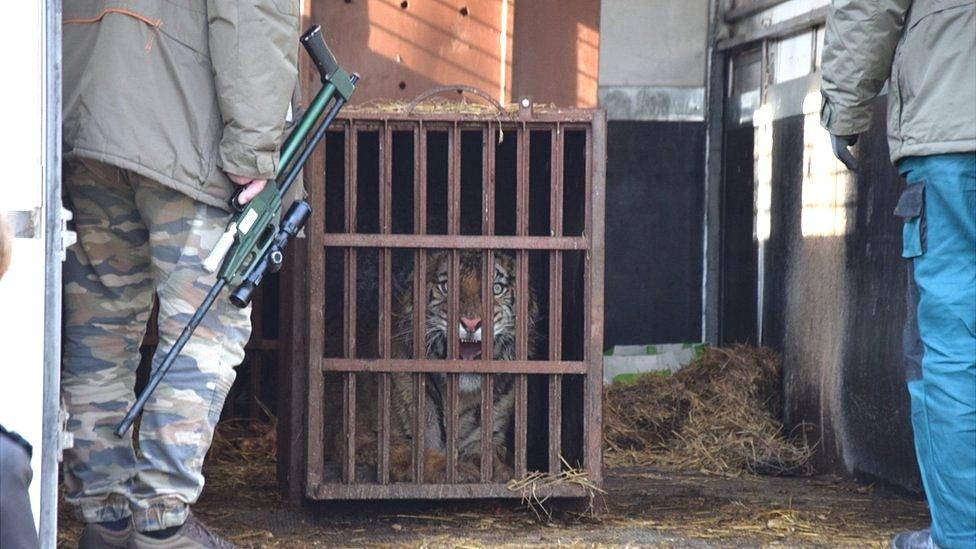
This tiger's cage was so small it could not stand up or stretch out
The Poznan Zoo rescuers said the tigers' docile behaviour suggested they had been tamed in a circus.
Non-existent zoo
BBC Russian tracked down the woman who ran Skazka zoo - Irina Kulikovskaya - and she confirmed she was to have received the tigers. However, Skazka no longer exists.
In 2017 zoo inspectors found it to be neglecting its animals.
Russia has only just introduced regulations for zoos. Yet they and circuses can continue operating without licences until 2022.
Ms Kulikovskaya currently has business licences for catering and selling pets.
She alleges that a simple numerical error in the paperwork was used by the border guards to justify their intervention.
But she shrugged it off, saying "of course if they are well in Spain that'll make me happy - I'm an animal lover".
The variation in law enforcement from country to country creates opportunities for wildlife traders.
Mr Casini at the LAV welfare group says Italy has drafted a law to ban the use of big cats in circuses.
"Similar laws exist in some other European countries," he said, but added that this could prompt circuses to send their big cats away to less regulated places.
- Published7 October 2019
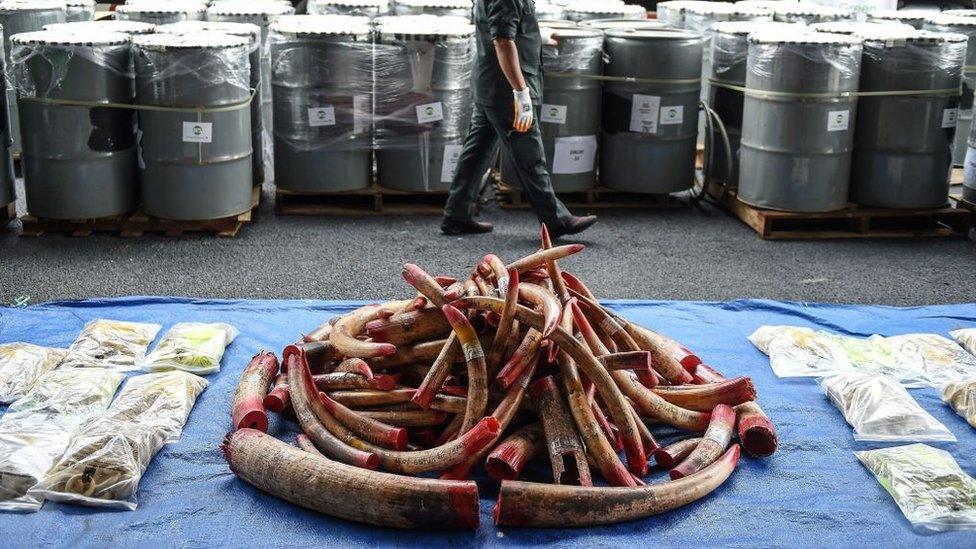
- Published30 October 2019
